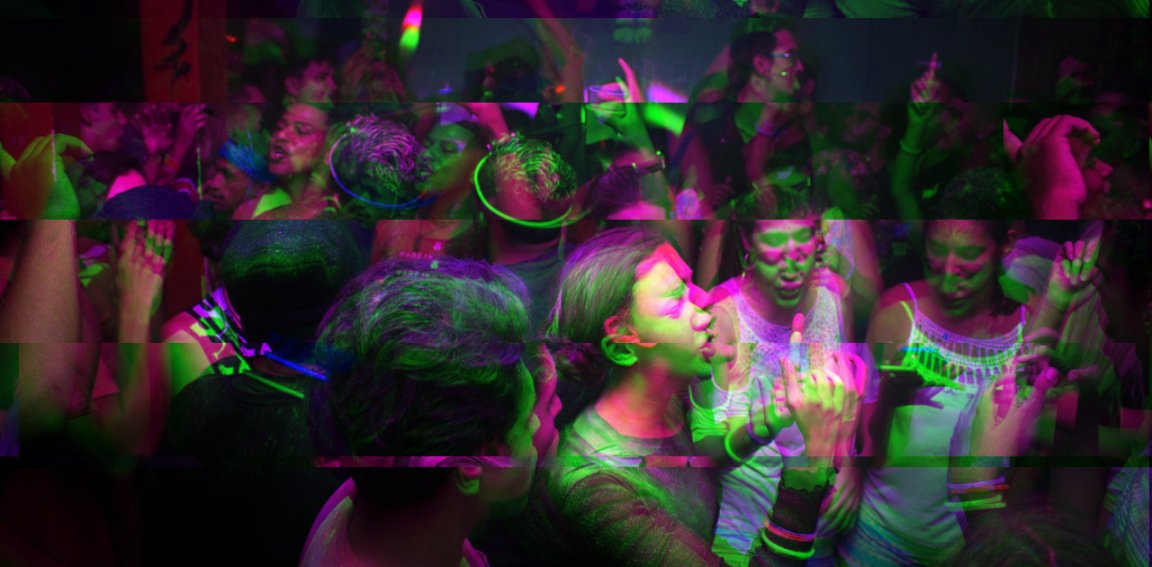
Yesterday, you might have noticed a wave of news stories about “COVID parties,” where college students in Tuscaloosa, Alabama were supposedly trying to catch the coronavirus — and taking home a cash pool if they were the first to get a diagnosis.
It was an irresistible narrative, about flagrantly irresponsible behavior, and the media ran with it. The story showed up on CNN, NBC‘s TODAY Show, the Associated Press, the New York Post, Insider, The Hill and many more — including, to be fair, Futurism.
But, as a number of our readers pointed out, the story may not hold up to scrutiny.
For one thing, no media organization appears to have actually talked to a student who took part in one of these parties. In fact, all reporting to date seems to be based on a story by ABC News, which is itself based on remarks by just two city officials, reported by a local ABC affiliate.
“They put money in a pot and they try to get COVID,” said a Tuscaloosa city councilor named Sonya McKinstry, according to the ABC News story. “Whoever gets COVID first gets the pot. It makes no sense. They’re intentionally doing it.”
That’s certainly an alarming allegation. But extraordinary claims call for extraordinary evidence.
The ABC story is written in such a way that it sounds though Tuscaloosa fire chief Randy Smith corroborated McKinstry’s claims.
“We thought that was kind of a rumor at first,” Smith said, according to the network. “We did some research. Not only do the doctors’ offices confirm it but the state confirmed they also had the same information.”
But as sharp-eyed Twitter user Brian Oliu pointed out, it’s not clear from the context of the footage whether Smith is corroborating McKinstry’s particular claims about coronavirus betting pools — or just irresponsible behavior in general. ABC did nothing to lessen that ambiguity, writing only that Smith “confirmed the students’ careless behavior.”
Local media also expressed skepticism, with Alabama newspaper reporter Brian Lyman tweeting as the story gained steam that it seemed to have “uncertain sourcing.”
We’ve reached out to both McKinstry and Smith to ask if they have local contacts among students or doctors who could corroborate the COVID parties story, and we’ll update this story if we hear back.
Another glaring issue that went unexamined in the wave of breathless coverage — including our own — is that it’s currently July, meaning that even in a normal year, most college students would be home for the summer. And because of the pandemic, virtually all summer classes are now online.
That doesn’t necessarily mean that college kids aren’t still getting together to party. It also doesn’t unequivocally establish that the COVID parties story is bunk.
But, as Northwestern journalism professor Steven Thrasher pointed out in an excoriating Twitter thread, if the parties were actually going on, there would almost certainly be a wealth of evidence. If ABC had really wanted to get to the bottom of the story, they should have been able to track down students who took part in the gatherings, or at least social media posts, online events, or evidence of money changing hands (the University of Alabama, for its part, told the TODAY Show that it hadn’t been able to identify any students who had taken part COVID parties.)
Thrasher also alluded to the long history of moral panics in the United States, which is context that we did acknowledge in our original story about the supposed parties:
Even with two officials corroborating the party story, it’s possible the gatherings are a rumor. There’s a long history of moral panics sweeping the United States before it ultimately turns out that actual phenomenon was rare or nonexistent.
If the story were true — and, to be fair, it still might be — it wouldn’t be the first example of boorish behavior by college kids during the pandemic. Remember back in March, when students on Spring Break went viral for defending their right to party right as the outbreak was gaining steam?
The reality, though, is that’s easy to get swept up in a too-convenient anecdote. This one, as Thrasher and Oliu both pointed out, feeds into the narrative that the pandemic is continuing to spread because of irresponsible young people — instead of paralyzed and ignorant leadership that has chronically refused to listen to medical professionals.
One bright side: Some observers, like Thrasher and Oliu, actually used their brains and called out the thin reporting. Wired should also be commended for breaking stride with its media peers and running a piece that forcefully argued that the story was probably nonsense, as well as probing deeper questions about the harmful viral news cycle.
“It is, of course, technically impossible to rule out the existence of Covid parties,” Wired wrote. “Maybe somewhere in this vast and complex nation there are some foolish people getting infected on purpose. It’s also possible that the miasma of media coverage will coalesce into a vector of its own, inspiring Covid parties that otherwise would not have happened. But so far there’s no hard evidence that even a single one has taken place — just a recurring cycle of breathless, unsubstantiated media coverage.”
And for our part? We’ve updated our original story with an editor’s note and a prominent link to this one. Going forward, we’ll try to apply more scrutiny, do better, and hold ourselves accountable when we make a mistake. In the meantime, mea culpa.
Editor’s note 7/3/2020: We added a line to this story crediting a local Alabama reporter for critiquing the story as it started to go viral.